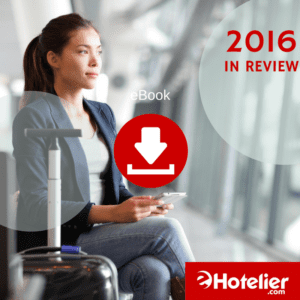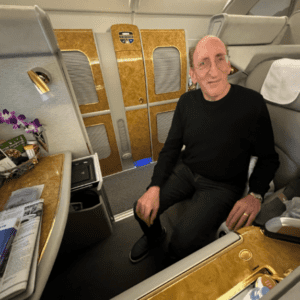 Revenue management (RM) as we know it is quite fractured, but this is about to change.
Revenue management (RM) as we know it is quite fractured, but this is about to change.
A 2017 Cornell report revealed that 63 per cent of hoteliers believe it’s now becoming more integrated. Hotels are increasingly applying RM to all revenue streams, so that they can optimise every touch point they have with guests and drive profit.
But where does this leave the revenue manager? They have neither the time nor the manpower to manage such large amounts of data. And as big data becomes more easily accessible, this will only become more difficult. Luckily, advances in artificial intelligence (AI) in the hotel industry can be used to lift this burden. Here’s how revenue managers can adapt to the latest digital advances and drive both efficiency and profit for their properties:
Gathering data
Whereas revenue management used to focus solely on the rooms and was separated from other revenue streams, a higher level of integration will enable hoteliers to link guest data across every touch point you have with guests, from the moment they make a booking right through to after check-out. This will allow you to better track the behaviour and spending of different guests throughout their stay, which can indicate which guest types are more likely to spend more or use a specific extra service.
For example, you might find that single, corporate guests tend to spend more money in the restaurant than guests staying in family rooms, who may go somewhere else for dinner. You could use this insight to adapt and make your restaurant more appealing to families to drive revenue, while inciting more corporate travellers to book direct by offering them a free restaurant coupon or discount voucher, which they wouldn’t get when booking through third parties, such as an online travel agency (OTA).
Two questions might be niggling you at this point; the first being how revenue managers will be able to handle all this guest data and the second being how your brand website will know which type of guest a visitor is likely to be. Artificial intelligence answers both of these questions.
Automated analytics
Integrating RM across all revenue streams means that you’ll not only be managing the data from room bookings, but from various streams in the property, such as the restaurant and bar, spa and leisure facilities, transportation services, tourist activities etc. It’s impossible to manage all this data for all guests at an effective speed, without incorporating automated analytics into your RM strategy. This will take a big step towards saving stress and improving efficiency for revenue managers.
AI can analyse large tranches of data at an immense speed, creating an opportunity for continuous learning as more and more data is gathered across all revenue streams and every touch point with every guest. Because of this continuous learning, the level of insight you receive from AI will constantly improve and thus so will your understanding of your guests. Both you and the AI can use this insight to optimise the guest experience online and achieve better results.
Seeing the potential of AI, Avvio has recently announced the launch of Allora, the world’s first AI booking platform, which will gather and analyse data not just across one property, but also across hundreds of hotels in Avvio’s network. Allora will pick up on hundreds of data points, including geography, guest history, booking preferences, website interactions, conversions and more, to better understand visitors’ behaviour. The AI platform will watch and learn from what’s currently happening, and what has happened in the past, so that it can optimise the booking journey and drive conversions.
Driving direct
Another recent trend in the hotel industry has been to focus more on encouraging guests to book direct, rather than through external channels like OTAs. As large hotel chains continue to see success from focusing on driving direct bookings through loyalty schemes and attractive direct packages, other smaller hotel groups and independents are also taking more efforts to driving bookings through their direct channels. The Temple Bar Hotel in Dublin, for example, offers discounts and complimentary Wi-Fi for guests who book direct and uses the Triptease widget to show website visitors that direct rates are the same, if not cheaper, than the rates offered by OTAs.
ÒWith OTA commission fees at 15-25 per centÊand average fees to booking engine providers being around 3-5 per cent, you get a much higher return on investment from direct bookings than you do from OTAs,” saidÊNiamh Power, Head of Client Strategy at Avvio.Ê”Revenue managers can also gather more data and insight about guests when they book direct, which will help you to more effectively track them across different touch points and better understand them so that you can offer them tailored recommendations, perks and upsells and improve their guest experience. The more data you gather, the more insight you gain and the more effective your analytics will become, meaning that you can better manage your revenue streams.Ó
You may have guessed it, but artificial intelligence can help you drive direct bookings. Allora, for example, uses its constant data analysis and advanced learning models to better understand consumer behaviour and personalise each website visitor’s journey to their needs and interests. By tracking the various booking lifecycle events, Allora can tailor the booking experience to each guest and incite them to progress onto the next step of the booking journey. As the visitor gets further and further through the booking journey, Allora learns more and more about them so that it can deliver even more relevant and personalised results, which encourages them to make a booking.
Providing emotional intelligence
With automation available to manage data and optimise the hotel’s direct channel, revenue managers should now focus on providing the emotional intelligence needed to understand data, connect with potential guests and maximise revenue. At this stage AI is about machines learning, not thinking for themselves. You need to work with AI; asking the right questions and determining the goal for it to work towards. The hotel sector is all about personal service and together with AI, revenue managers can deliver that personal service across all of your digital channels.
Allora, the world’s first AI booking engine, will be launched by Avvio in October. For more on Allora or to register your interest, visit www.allora.ai.
By Fionnuala Bland

Fionnuala Bland is the PR Executive for Avvio, the premium booking platform and digital agency for hotels and serviced apartment providers. Founded in 2002, Avvio has grown year-on-year by developing cutting-edge technologies that enable accommodation providers to drive outstanding growth in direct bookings, while reducing their dependence on online travel agencies.
Want to keep up to date with industry news? Click here to subscribe toÊeHotelier’s dailyÊe-newsletter.

 Revenue management (RM) as we know it is quite fractured, but this is about to change.
Revenue management (RM) as we know it is quite fractured, but this is about to change.

















